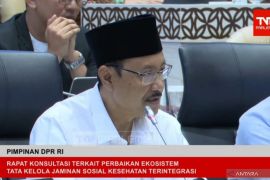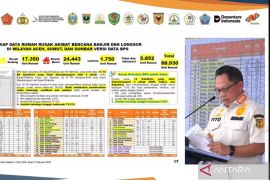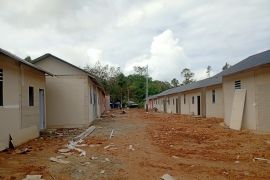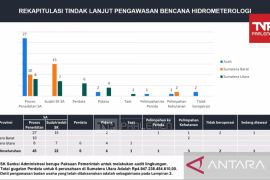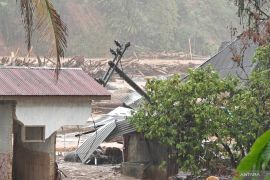"The central and provincial governments have been striving to assist business players in the tourism sector and their workers severely hit by the COVID-19 outbreak," she informed local journalists in Medan, the capital of North Sumatra Province, on Tuesday.
To this end, the Ministry of Tourism/Creative Economy Agency has offered 16,100 packages of basic necessities and ready-to-eat food items for the affected tourism workers in North Sumatra, Telaumbanua remarked.
Right from the early phase of the COVID-19 outbreak, which initially struck the Chinese city of Wuhan at the end of 2019, and since then spread all across the globe, the tourism industry was the first and hardest-hit business sector in North Sumatra, she pointed out.
Related news: Tourist confidence crucial for recovery of Indonesia's tourism sector
Related news: Tourism Minister highlights significance of applying health protocols
Speaking in connection with the reopening of tourist destinations in the province, Telaumbanua affirmed that the North Sumatra provincial administration had left the decision on the district and city governments since they were aware of the COVID-19-related situation in their administrative areas.
The COVID-19 pandemic, undeniably a huge crisis in human history, has crippled the global economy, partly owing to travel restrictions, shutdown of business entities, disruption of supply chains, and border closures.
President Joko Widodo (Jokowi) admitted recently to have been apprised of the global economic crisis being a real challenge, and several nations had felt its impact amid the ongoing global pandemic.
The International Monetary Fund (IMF) had forecast that this year, several countries would experience an economic contraction.
The US economy is projected to contract up to minus eight percent, while the economies of Japan, the UK, France, Italy, Spain, and Germany are expected to decline to -5.8 percent, -10.2 percent, -12.5 percent, -12.8 percent, - 12.8 percent, and -7.5 percent, respectively.
According to the IMF, Indonesia's growth slowed in the first quarter of 2020 to three percent year-on-year, from five percent in the fourth quarter of 2019, or -2.4 percent quarter-on-quarter, mostly driven by reduced consumption and investment, as containment measures were intensified in late February.
Indonesia's rupiah depreciated by 1.9 percent against the US dollar, while equity prices had plunged by 21 percent, up from a 40-percent decline in late March, according to IMF's policy tracker, published on its official website.
The yield on rupiah-denominated 10-year government bonds had increased marginally by eight bps to 7.1 percent, decreasing from a 132-bps spike in late March, according to the IMF.
"What does this mean? It means that supply, demand, and production will get disrupted. We must be aware of the fact that while we are handling public health issues, we are still reeling from the other problem, that is, the economy," President Jokowi noted.
This has prompted a call for maintaining a balance in pushing the brake and accelerator pedals in managing the public health and economic crises.
Related news: Ministry asked to launch labor-intensive program for tourism workers
Related news: Seribu Islands' tourist resorts open by implementing health protocols
Translator: Rahmad Nasution
Editor: Sri Haryati
Copyright © ANTARA 2020





